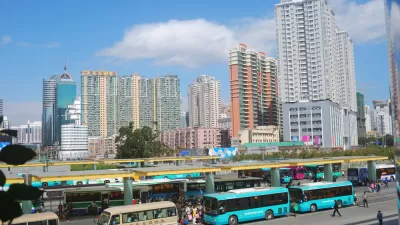The Metropolitan Council has released "The Twin Cities Regional Forecast to 2040: Steady Growth and Big Changes Ahead" to provide a foundation for coordinated planning by the Metropolitan Council and local governments.

Metropolitan Council research staff presented updated regional forecasts to the council at a recent meeting. "The Twin Cities Regional Forecast to 2040: Steady Growth and Big Changes Ahead" completes a regular update of population, households, and jobs in the region until 2040. Regular updates incorporate changes in national forecasts and current assumptions, as well as the most recent data.
The regional forecast shows the Twin Cities region will gain 888,000 residents between 2010 and 2040, a slightly higher population than the previous forecast, bringing the region's population to 3,738,000 by 2040. That total would be equivalent to 57 percent of the state’s population. Most growth will result from natural growth (i.e., more births than deaths). The Twin Cities region will also continue to gain residents through international immigration.
The region will add 495,000 jobs between 2010 and 2040, with more rapid growth in the 2010s and a slower pace in the 2020s and 2030s. Forecasts indicate the region will become more racially and ethnically diverse as well as older. The aging of the population is expected to significantly reshape the housing market, and household sizes will continue to decline. By 2040, one-person households will account for one-third of all households in the region. The population's share of people of color in 2040 will be 39 percent. The number of working-age residents of color will more than double, combined with a near-doubling of children and young adults of color. This will have significant implications for the region's future work force and school enrollments.
FULL STORY: The Twin Cities Regional Forecast to 2040: Steady Growth and Big Changes Ahead

Planetizen Federal Action Tracker
A weekly monitor of how Trump’s orders and actions are impacting planners and planning in America.

Restaurant Patios Were a Pandemic Win — Why Were They so Hard to Keep?
Social distancing requirements and changes in travel patterns prompted cities to pilot new uses for street and sidewalk space. Then it got complicated.

Map: Where Senate Republicans Want to Sell Your Public Lands
For public land advocates, the Senate Republicans’ proposal to sell millions of acres of public land in the West is “the biggest fight of their careers.”

Maui's Vacation Rental Debate Turns Ugly
Verbal attacks, misinformation campaigns and fistfights plague a high-stakes debate to convert thousands of vacation rentals into long-term housing.

San Francisco Suspends Traffic Calming Amidst Record Deaths
Citing “a challenging fiscal landscape,” the city will cease the program on the heels of 42 traffic deaths, including 24 pedestrians.

California Homeless Arrests, Citations Spike After Ruling
An investigation reveals that anti-homeless actions increased up to 500% after Grants Pass v. Johnson — even in cities claiming no policy change.
Urban Design for Planners 1: Software Tools
This six-course series explores essential urban design concepts using open source software and equips planners with the tools they need to participate fully in the urban design process.
Planning for Universal Design
Learn the tools for implementing Universal Design in planning regulations.
Heyer Gruel & Associates PA
JM Goldson LLC
Custer County Colorado
City of Camden Redevelopment Agency
City of Astoria
Transportation Research & Education Center (TREC) at Portland State University
Camden Redevelopment Agency
City of Claremont
Municipality of Princeton (NJ)




























